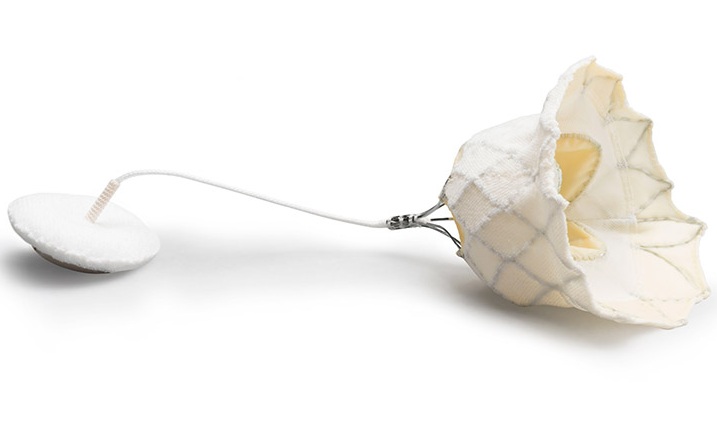Expo
view channel
view channel
view channel
view channel
view channel
Medical Imaging
AI
Surgical TechniquesPatient CareHealth ITPoint of CareBusiness
Events

- Continuous Molecular Monitoring Biosensor to Enable Early Disease Detection
- Breakthrough Portable Device Detects Airborne Viruses and Bacteria in Hospitals
- New System Combines Biomarkers, Imaging and Modifiers for Accurate TBI Diagnosis
- Magnetic Shaftless Propeller Millirobot Shows Promise for Thrombosis Treatment and Targeted Drug Delivery
- Light-Activated Immunotherapy Combined with Engineered Protein Technology Targets Hard-To-Treat Cancer
- Innovation in Thermographic Neurosurgical Imaging Supports Informed Decision-Making
- Fluorescent Soft Robots Accurately Locate Early Gastric Cancer During Laparoscopic Surgery
- Ultrasound-Activated Microstructures Clean Implanted Stents and Catheters
- First-Ever MRI-Steerable Micro-Robotics to Revolutionize Glioblastoma Treatment
- Bioprinted Aortas Offer New Hope for Vascular Repair
- First-Of-Its-Kind Portable Germicidal Light Technology Disinfects High-Touch Clinical Surfaces in Seconds
- Surgical Capacity Optimization Solution Helps Hospitals Boost OR Utilization
- Game-Changing Innovation in Surgical Instrument Sterilization Significantly Improves OR Throughput
- Next Gen ICU Bed to Help Address Complex Critical Care Needs
- Groundbreaking AI-Powered UV-C Disinfection Technology Redefines Infection Control Landscape
- Expanded Collaboration to Transform OR Technology Through AI and Automation
- Becton Dickinson to Spin Out Biosciences and Diagnostic Solutions Business
- Boston Scientific Acquires Medical Device Company SoniVie
- 2026 World Hospital Congress to be Held in Seoul
- Teleflex to Acquire BIOTRONIK’s Vascular Intervention Business
- Smartwatches Could Detect Congestive Heart Failure
- Versatile Smart Patch Combines Health Monitoring and Drug Delivery
- Machine Learning Model Improves Mortality Risk Prediction for Cardiac Surgery Patients
- Strategic Collaboration to Develop and Integrate Generative AI into Healthcare
- AI-Enabled Operating Rooms Solution Helps Hospitals Maximize Utilization and Unlock Capacity

 Expo
Expo
- Continuous Molecular Monitoring Biosensor to Enable Early Disease Detection
- Breakthrough Portable Device Detects Airborne Viruses and Bacteria in Hospitals
- New System Combines Biomarkers, Imaging and Modifiers for Accurate TBI Diagnosis
- Magnetic Shaftless Propeller Millirobot Shows Promise for Thrombosis Treatment and Targeted Drug Delivery
- Light-Activated Immunotherapy Combined with Engineered Protein Technology Targets Hard-To-Treat Cancer
- Innovation in Thermographic Neurosurgical Imaging Supports Informed Decision-Making
- Fluorescent Soft Robots Accurately Locate Early Gastric Cancer During Laparoscopic Surgery
- Ultrasound-Activated Microstructures Clean Implanted Stents and Catheters
- First-Ever MRI-Steerable Micro-Robotics to Revolutionize Glioblastoma Treatment
- Bioprinted Aortas Offer New Hope for Vascular Repair
- First-Of-Its-Kind Portable Germicidal Light Technology Disinfects High-Touch Clinical Surfaces in Seconds
- Surgical Capacity Optimization Solution Helps Hospitals Boost OR Utilization
- Game-Changing Innovation in Surgical Instrument Sterilization Significantly Improves OR Throughput
- Next Gen ICU Bed to Help Address Complex Critical Care Needs
- Groundbreaking AI-Powered UV-C Disinfection Technology Redefines Infection Control Landscape
- Expanded Collaboration to Transform OR Technology Through AI and Automation
- Becton Dickinson to Spin Out Biosciences and Diagnostic Solutions Business
- Boston Scientific Acquires Medical Device Company SoniVie
- 2026 World Hospital Congress to be Held in Seoul
- Teleflex to Acquire BIOTRONIK’s Vascular Intervention Business
- Smartwatches Could Detect Congestive Heart Failure
- Versatile Smart Patch Combines Health Monitoring and Drug Delivery
- Machine Learning Model Improves Mortality Risk Prediction for Cardiac Surgery Patients
- Strategic Collaboration to Develop and Integrate Generative AI into Healthcare
- AI-Enabled Operating Rooms Solution Helps Hospitals Maximize Utilization and Unlock Capacity






































